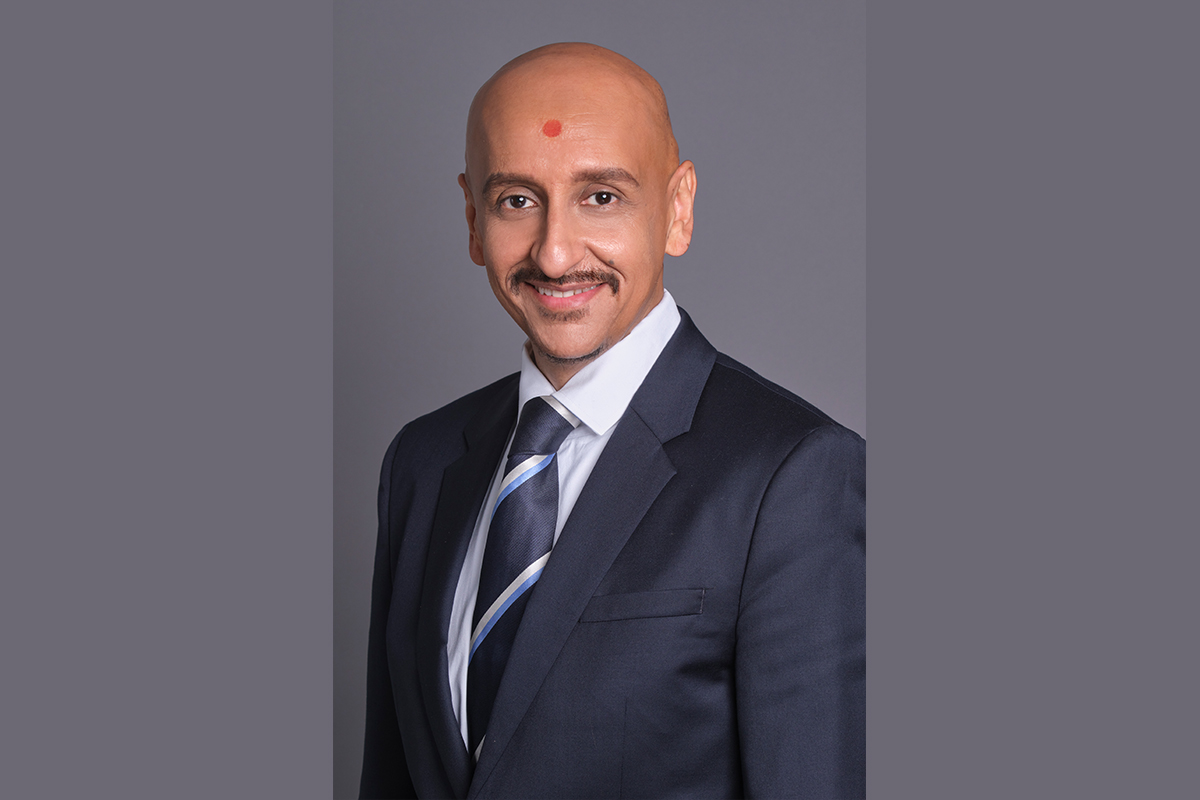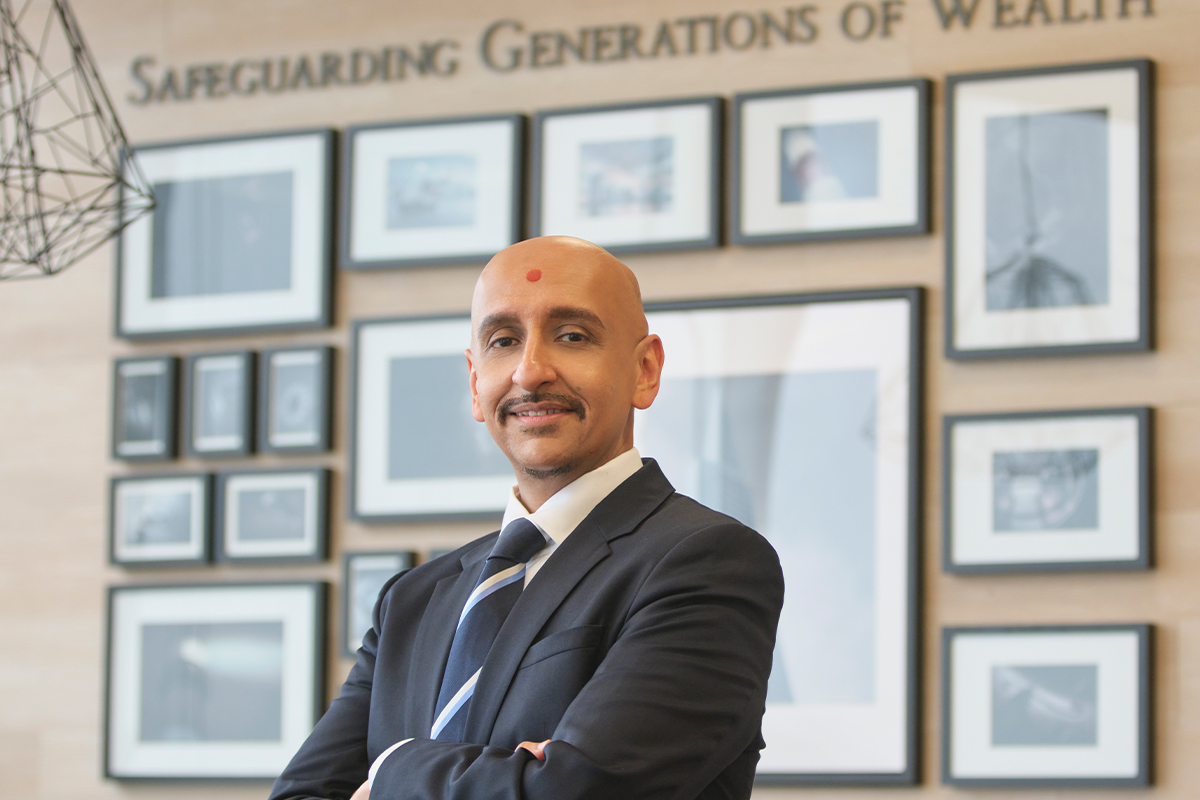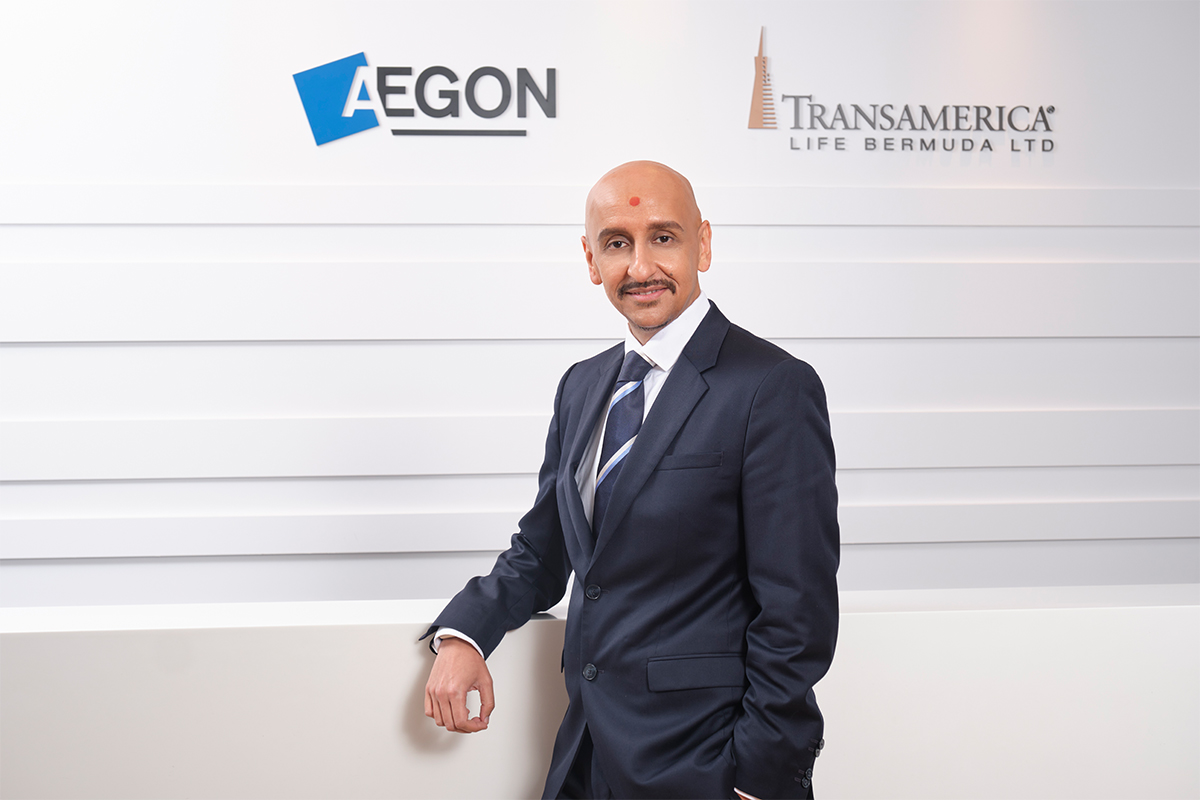It’s important that established companies stay fresh – and in 2023 that means giving customers plenty of choice.

With an esteemed and established history behind them, it can be easy for a long-standing company to become complacent and trade on reputation alone. But Chirag Rathod, CEO of Transamerica Life Bermuda, believes while solid backgrounds build trust, flexibility is key to propelling a business forward for decades to come – both in their offering to the customer and curating a healthy mindset within the company.
Transamerica Life Bermuda, which specializes in life insurance for high-net-worth individuals, is part of the Transamerica Group, founded in 1906 and owned by multinational insurance company Aegon, itself established in the early 19th century. This means experience is something to be found in plentiful supply.
“Through our long history in the high-net-worth market, I believe we understand the unique challenges that high-net-worth customers face, and we’ve got extensive experience in handling large sums and very complex cases to be able to support legacy and business planning,” Rathod explains.
“I prefer to look at flexibility in terms of what has got us here may not necessarily be sufficient to get us there in the future.”
Using that in-depth knowledge of customers and the market is critical for Transamerica Life Bermuda to develop tailored solutions for its clients, but just as important is the willingness to upgrade and adapt older practices to embrace the future. “I prefer to look at flexibility in terms of what has got us here may not necessarily be sufficient to get us there in the future,” he says.
As well as new computer systems and ensuring cutting-edge IT is available to protect data, Rathod says technological abilities are being embedded in traditionally face-to-face relationships to enhance and improve Transamerica Life Bermuda’s offering. This is, in part, thanks to the lessons learned during the COVID-19 pandemic.
While not without challenges, Rathod admits the opportunity to try new ways of working and thinking was a positive one that could be refined for ongoing use. And it has led to new approaches, which have now been established as the norm.

“It has given us an opportunity to be able to really change things – because consumer demands in terms of interacting with us have changed,” he says. “Sticking to how we have interacted with partners and customers historically won’t work anymore and there’s a need to build in more flexibility.
“We need to give options to our partners and customers so that they can actually determine for themselves, based on their own preferences, how they would like us to interact with them and how they would like to interact with us. That flexibility is a key point in making us easier to do business with in the future.”
Digitalization, in which the company has heavily invested, has helped ensure it remains relevant in an increasingly tech-based landscape. “Technology has allowed us to streamline our processes and increase our flexibility,” he explains.
“It makes us easier to do business with. The vision here is to change from an approach that says: ‘How have things been done in the past?’ and to build in the flexibility so that customers and partners are able to tailor how they work with you according to what their desires and needs are and what works best for them.”
Delivering certainty in an uncertain world

Rathod says the pandemic has also focused more minds on succession planning and the uncertainty it created made high-net-worth clients think more about ensuring they had appropriate insurance in place.
“The pandemic forced people to look close to home at things like their own health, their own desire to protect their family and loved ones, as well as the businesses they’ve built up and what they’ve worked so hard to create” he says.
“There’s an increased awareness and interest in protection as well as a desire to plan for the future. I think, in the context of that, the life insurance solutions that we provide are a perfect vehicle to be able to deliver that certainty and peace of mind. We see that demand has increased because the amount of uncertainty in the world has increased.”
“We need to give options to our partners and customers so that they can actually determine for themselves, based on their own preferences, how they would like us to interact with them and how they would like to interact with us.”
Even the most established businesses need to acknowledge that the priorities and preferences of their customer base are constantly evolving and, while they may be drawn to the security of a long-established firm, modern outlooks will be a deciding factor in whether they engage with them.
“If we look at future planning, it’s intertwined with sustainability – making sure there is a better tomorrow,” Rathod says. “We are seeing a lot more of this trend around sustainability and philanthropy. Our parent company believes very strongly in sustainability and it’s not only something that we are passionate about, our customers are equally passionate about it.”
The customer-centric approach is not new for Transamerica Life Bermuda and, by listening to what they want, working with partners who share their operational excellence and providing flexibility based on deep insightful knowledge, Rathod is securing the future of the company for generations to come.
“Our customers are very astute,” he says. “They do have choices, and therefore they can shop around very easily; that’s why, [we use] flexibility to allow the customer to experience operational excellence with us, irrespective of the approach that they want to use. I think that’s the key vision for us to work towards, and to continue to work towards.”


